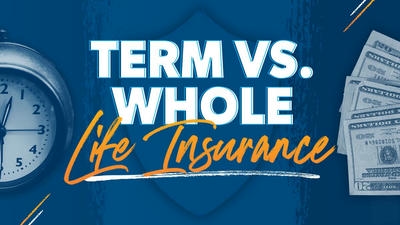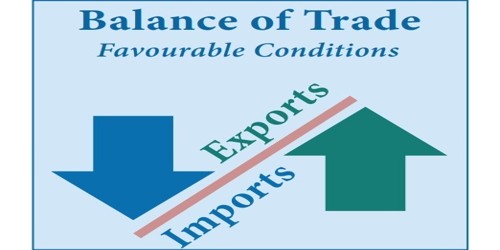
In today’s economic landscape, choosing the right place to park your cash is critical for maximizing returns while managing risk. Whether you are saving for a short-term goal, building an emergency fund, or simply seeking a safe place for your money, understanding the differences between high yield savings accounts, certificates of deposit (CDs), and money market accounts (MMAs) is essential. Each option has its features, benefits, and drawbacks.
1. Understanding Cash Management
1.1 Importance of Cash Management
Effective cash management is a critical aspect of personal finance, particularly for individuals and families looking to achieve their financial goals. Managing cash effectively ensures that you have sufficient liquidity for emergencies, investments, and day-to-day expenses while maximizing returns on your savings. Understanding the different options available for parking cash allows you to make informed decisions that align with your financial objectives.
1.2 Key Considerations for Parking Cash
When considering where to park your cash, several factors come into play:
- Interest Rates: Higher interest rates typically mean better returns on your savings, so it’s essential to compare rates across different accounts.
- Liquidity: The ability to access your funds quickly without penalties is crucial, especially in emergencies.
- Safety: Ensuring that your funds are protected from loss is paramount, so look for accounts insured by the Federal Deposit Insurance Corporation (FDIC).
- Fees: Be aware of any fees associated with maintaining accounts, as they can erode your returns.
Understanding these factors will help guide your decision-making process.
2. High Yield Savings Accounts

2.1 Definition and Features
A high yield savings account (HYSA) is a type of savings account that offers a higher interest rate compared to traditional savings accounts. These accounts are typically offered by online banks and credit unions, which can afford to provide higher rates due to lower overhead costs. Generally, they provide easy access to your funds while enabling you to earn better interest.
2.2 Advantages of High Yield Savings Accounts
- Higher Interest Rates: HYSAs usually offer interest rates that significantly outperform traditional savings accounts, allowing your savings to grow more quickly.
- Liquidity: Funds in a HYSA are easily accessible when needed. Most accounts allow for electronic transfers and withdrawals without penalties.
- Minimal Fees: Many HYSAs come with low or no monthly maintenance fees, making them a cost-effective choice.
- FDIC Insured: Like other bank savings products, HYSAs are typically insured by the FDIC up to a limit of $ 250,000, ensuring your funds are protected.
2.3 Disadvantages of High Yield Savings Accounts
- Variable Interest Rates: The interest rates on HYSAs can fluctuate based on market conditions, meaning your returns may decrease over time.
- Withdrawal Limits: While HYSAs offer liquidity, they may be subject to federal regulations limiting withdrawals to six per month, although this regulation may have changed post-pandemic.
- Online Accessibility: Many HYSAs are offered by online banks, which may lack physical branches, potentially making customer service less convenient for some individuals.
3. Certificates of Deposit (CDs)
3.1 Definition and Features
A CD is a time deposit offered by banks and credit unions that typically requires you to lock in your funds for a specified period, ranging from a few months to several years. In exchange for agreeing to leave your money untouched for the duration of the term, you receive a fixed interest rate that is often higher than what is offered by savings accounts.
3.2 Advantages of CDs
- Fixed Interest Rates: CDs generally offer fixed rates, providing predictability in your returns, regardless of market changes.
- Higher Rates for Longer Terms: Longer-term CDs often provide higher rates, which can be an excellent option for individuals looking to save for longer periods without needing immediate access to funds.
- FDIC Insured: CDs are insured by the FDIC up to $ 250,000, making them a very safe investment choice.
3.3 Disadvantages of CDs
- Lack of Liquidity: Funds in a CD are locked in until the maturity date, and early withdrawals typically incur penalties, which can erode your returns.
- Inflation Risk: If inflation rises significantly, the fixed interest rate may not keep pace with the cost of living, eroding the purchasing power of your savings.
- Opportunity Cost: By locking in funds for a set term, you may miss out on better investment opportunities or higher interest rates available elsewhere.
4. Money Market Accounts (MMAs)

4.1 Definition and Features
A money market account (MMA) is a type of savings account that typically offers higher interest rates than traditional savings accounts while providing some features of checking accounts, such as limited check-writing privileges and debit card access. MMAs often require a higher minimum balance to open and maintain.
4.2 Advantages of MMAs
- Competitive Interest Rates: MMAs generally offer higher interest rates compared to regular savings accounts, allowing your money to grow more effectively.
- Liquidity: MMAs provide easier access to your funds than CDs. They often allow for withdrawals, checks, and debit card usage, although there may be limits on the number of monthly transactions.
- FDIC Insured: Like other bank accounts, MMAs are insured by the FDIC up to $ 250,000, ensuring the safety of your funds.
4.3 Disadvantages of MMAs
- Higher Minimum Balance Requirements: Many MMAs require a higher initial deposit and minimum balance, which may not be feasible for all savers.
- Variable Interest Rates: Similar to HYSAs, the interest rates on MMAs can fluctuate based on market conditions.
- Fees: Some MMAs may carry maintenance fees or penalties for falling below the minimum balance requirement, which can affect overall returns.
5. Comparing High Yield Savings Accounts, CDs, and MMAs
5.1 Interest Rates and Returns
When comparing interest rates, CDs generally offer the highest fixed rates, especially for longer terms. HYSAs and MMAs usually provide variable rates, but HYSAs typically offer higher rates than MMAs. Consider how much interest each option offers and the predictability of those rates based on your financial goals.
5.2 Liquidity and Access to Funds
If liquidity is paramount, HYSAs and MMAs are better options since they allow for easy access to funds. CDs, on the other hand, lock your money away for a predetermined period, leading to potential penalties for early withdrawals.
5.3 Minimum Balance Requirements
HYSAs often have low to no minimum balance requirements, making them accessible for most savers. Conversely, MMAs generally require a higher initial deposit and minimum balance to avoid fees. CDs vary widely, with some requiring a minimum deposit while others do not.
5.4 FDIC Insurance and Safety
All three options are typically insured by the FDIC up to $ 250,000 per depositor, making them safe choices for parking cash. However, confirm that the specific financial institution you choose offers this protection.
6. Strategic Considerations for Parking Your Cash

6.1 Assessing Your Financial Goals
Your financial objectives will guide your choice of where to park your cash. For short-term savings or emergency funds, HYSAs and MMAs may be sufficient. For long-term savings goals that don’t require immediate access to funds, consider CDs for higher, fixed returns.
6.2 Evaluating Your Risk Tolerance
Your risk tolerance is a crucial factor in determining where to park your cash. If you prefer stable, predictable returns, CDs may be the best option, while HYSAs and MMAs might suit those comfortable with slightly more volatility in interest rates.
6.3 Choosing the Right Option for Your Needs
Ultimately, the right choice depends on your unique situation. Consider your liquidity needs, tolerance for risk, and overall financial strategy when deciding between high yield savings accounts, CDs, and money market accounts.
7. Conclusion
Storing cash safely while maximizing returns is a key component of effective wealth management. High yield savings accounts, certificates of deposit, and money market accounts each offer unique features, benefits, and drawbacks that cater to varying financial needs and goals.
High yield savings accounts offer quick access to funds and higher interest rates, making them ideal for emergency funds or short-term savings. Certificates of deposit provide fixed returns and higher rates for locking in your funds for a specific period, appealing to those comfortable with limited access. Money market accounts strike a balance between earning interest and accessing funds, though they often come with higher minimum balance requirements.
By understanding these options and aligning them with your financial goals, you can make informed choices about where to park your cash. Doing so not only helps you maintain liquidity but can also lead to greater financial security and growth.








